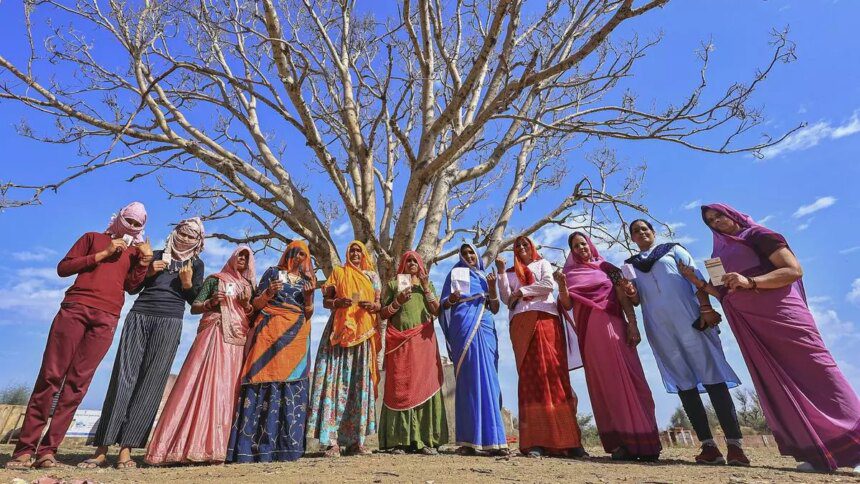In 2024, there has been a notable increase of 1.8 crore in women voter turnout compared to 2019, largely attributed to the implementation of schemes focused on women’s empowerment, according to a report from SBI Research. This rise is further supported by various income transfer initiatives launched by different states.
Analysts from SBI’s Economic Research Department (ERD) have proposed that the Election Commission (EC) should develop a comprehensive absentee voting system to ensure that every citizen can cast their vote. They estimate that around 30 crore people could benefit from such a system.
The suggested absentee voting methods could include postal voting, early voting, proxy voting, or electronic voting. These options would enable individuals to exercise their democratic rights during elections, which are considered a pivotal event in a democracy.
Out of the 1.8 crore increase in women voters, several factors contributed to this gain: 45 lakh can be linked to improvements in literacy rates; 36 lakh are associated with employment initiatives like the Mudra Yojana; 20 lakh is due to home ownership under the Pradhan Mantri Awas Yojana; and another 21 lakh can be attributed to better sanitation. Additionally, access to electricity and improved drinking water sources have also positively influenced female voter turnout, as noted by the researchers from SBI’s ERD.
This analysis is grounded in a unique set of research data released by the Election Commission, a pioneering effort on a global scale.
The ERD highlights that over the past decade, more than 9 crore additional voters participated in elections, with 58 percent of this increase coming from female voters, amounting to approximately 5.3 crore. There has also been a significant rise in voter turnout among scheduled castes (SC) and scheduled tribes (ST), particularly among women, demonstrating the empowerment of individuals from disadvantaged backgrounds.
In states that have implemented women-centric programs, the average voter turnout among women increased by 7.8 lakh, totaling 1.5 crore in 2024. In contrast, states that did not implement such schemes only experienced a marginal increase of 2.5 lakh, or 0.3 crore, since 2019.










